
Sleep is crucial to wellness, but it is disrupted in almost all patients with Parkinson’s disease. Many factors can cause disturbed sleep in people with…

Sleep is crucial to wellness, but it is disrupted in almost all patients with Parkinson’s disease. Many factors can cause disturbed sleep in people with…

Non-motor symptoms (NMSs) are highly prevalent throughout the course of Parkinson’s disease (PD). Pain, autonomic dysfunction and sleep disturbances remain at the forefront of the…
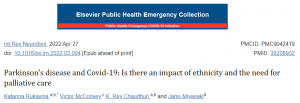
Under the traditional models of care for People with Parkinson’s Disease (PD, PwP), many of their needs remain unmet and a substantial burden of motor…
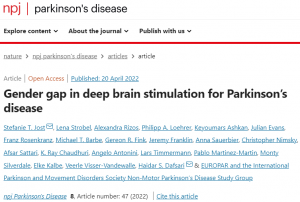
Previous studies have shown less access to deep brain stimulation (DBS) for Parkinson’s disease (PD) in women compared to men raising concerns about a potential…

The Coronavirus disease 2019 (Covid-19) pandemic has fueled both research and speculation, as to whether it could be a “perfect storm” for a post-Covid emergence…
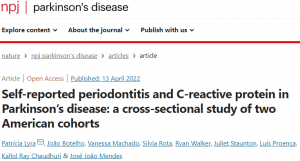
Periodontitis triggers systemic repercussions, such as elevated levels of high-sensitive C-reactive protein (hs-CRP). This has never been studied within Parkinson’s Disease (PD). The aim of…
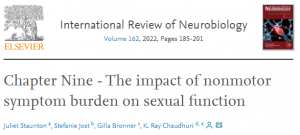
Sexual dysfunction (SD) is defined as a combination of reduction in libido, and problems with a person’s ability to have sex. It is a frequent…

Aim: This subanalysis of the OPTIPARK study aimed to confirm the effectiveness and safety of opicapone in patients with Parkinson’s disease and motor fluctuations in clinical…

Parkinson’s disease is a progressive neurodegenerative disease, which significantly impacts patients’ quality of life and is associated with high treatment and direct healthcare costs. In…
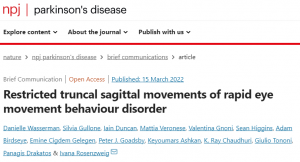
Unlike sleep-walkers, patients with rapid-eye-movement-behaviour disorder (RBD) rarely leave the bed during the re-enactment of their dreams. RBD movements may be independent of spatial co-ordinates…